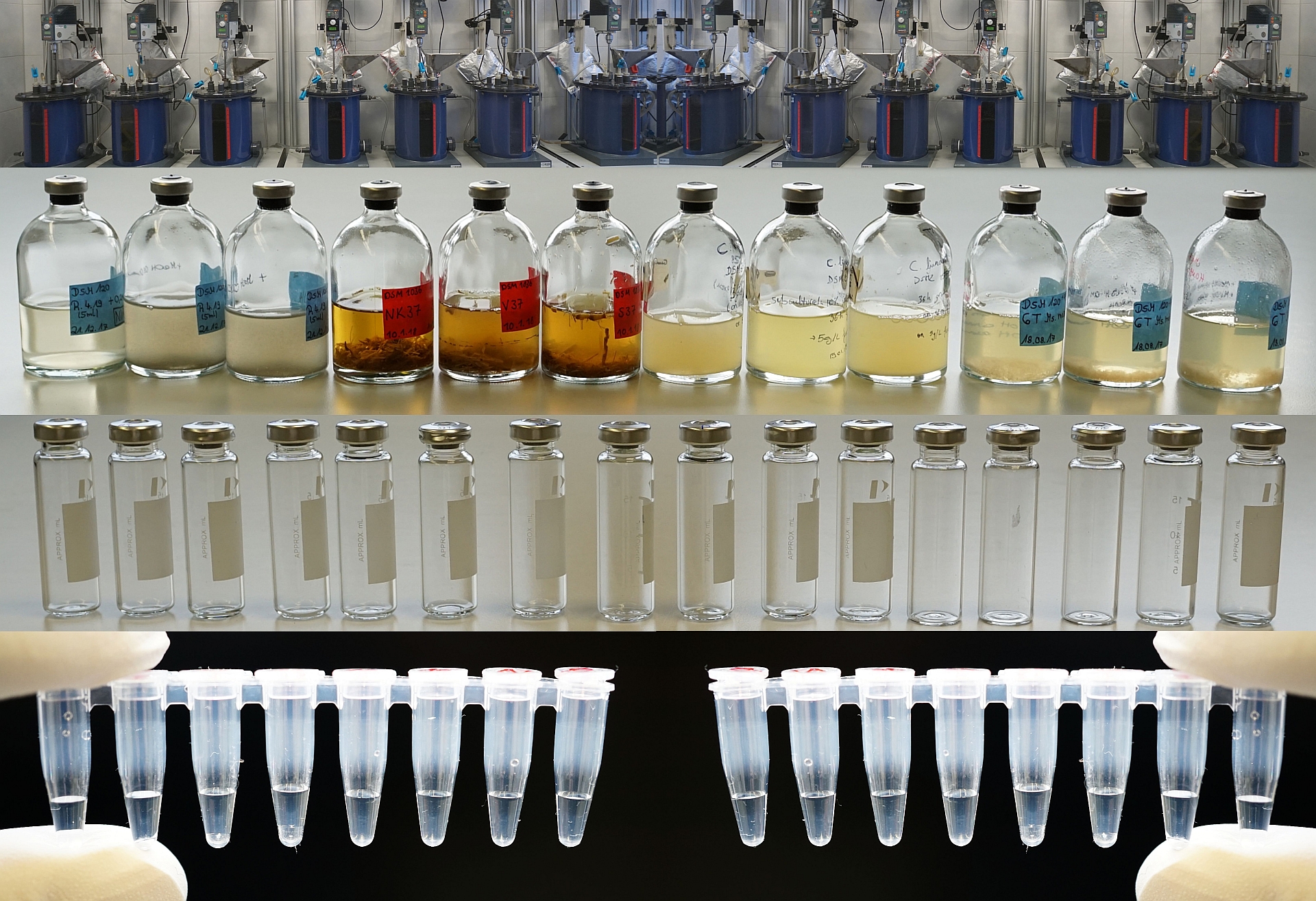Microbiology of Anaerobic Systems

Research Focus
Anaerobic microorganisms include the oldest life-forms on Earth and display the most manifold metabolic pathways and lifestyles that have ever arisen in evolution, for example, the various respiratory and fermentative forms of energy conservation, mechanisms of carbon fixation, or the syntrophic degradation pathways that enable life at the edge of the thermodynamic limit. Anaerobic microbial communities play essential roles in biogeochemical cycles, natural attenuation of contaminated sites, and various biotechnological processes, such as wastewater treatment, anaerobic digestion of organic waste and fermentative production of green chemicals.
The MicAS Group investigates the ecology and physiology of anaerobic microbial communities in natural and engineered ecosystems with the aim of utilizing the metabolic activities of anaerobic microbes for biotechnological applications as well as elucidating the ecophysiological role of not yet cultured microbes and their significance for ecosystem functions.
In engineered systems such as anaerobic digesters and anaerobic bioreactors, we develop strategies for process optimization. We aim to identify microbial parameters for process control and to explore novel feedstocks and microbial resources for the production of green chemicals and fuels from renewable resources. In environmental systems, we investigate the role of anaerobic microorganisms in biogeochemical cycles and in the degradation of organic pollutants.
- Anaerobic biorefineries for the material and energetic use of biomass and organic residues
- Microbial chain elongation and syngas fermentation for the production of biobased platform chemicals
- Tapping microbial resources by isolating novel strains with interesting fermentation pathways
- Metagenome-based analysis and modeling of metabolic networks in anaerobic consortia
- Engineered microbial consortia for optimized anaerobic conversion of lignocellulose to medium-chain carboxylates
- Mitigating propionate and butyrate inhibition in anaerobic digestion by promoting direct interspecies electron transfer
- Single cell protein from hydrogenotrophic bacteria (Power-to-Protein)
- Biotransformation of antibiotics and spread of antibiotic resistance genes in agricultural biogas plants
- Biodegradation of anthropogenic micropollutants in wastewater treatment plants (acesulfame K as model compound)
- Microbial causes of foam formation in biogas plants
.jpg)
Scientists
Dr. Eng. Flávio C. F. Baleeiro
Dr. Maria Letícia Bonatelli
Dr. Marcell Nikolausz
Dr. Heike Sträuber
Technicians
Anna-Lena Hack
Claudia Heber
Eva-Maria Jacobs
Ute Lohse
Apprentice
Oliver Peukert
Students and research assistants
Tom Bauer
Marina Boussaud
Daanish Ahmad Khan
Matti Lehmann
Sophie Lorenz
Angel-Maria Thattil
Lisa-Marie Bangen
Dr. Fabian Bonk
Birke Brumme
Dr. Franziska Bühligen
Rodrigo Amarante Colpo
Dr. Tarek M.M. Hamed Elzamel
Dr. Christin Koch
Friederike Koppius
Dr. Athaydes Leite
Dr. Bin Liu
Washington Logroño
Dr. Rico Lucas
Dr. Zuopeng Lv
Dr. Gözde Özbayram
Dr. Denny Popp
Dr. Katharina Porsch
Sebastian Röther
Bruna Grosch Schroeder
Florian Tittmann
Dr. Babett Wintsche
Field Study: Anaerobic fermentation merging the carboxylate and syngas platforms: Harnessing the potential of mixotrophic communities (MixoFerm-Markt), Impulse and Networking Fund of the Helmholtz Association, FKZ PP-B-01-03
Fixing CO2 emissions from biogas plants into carboxylates - CapCO2, Impulse and Networking Fund of the Helmholtz Association
